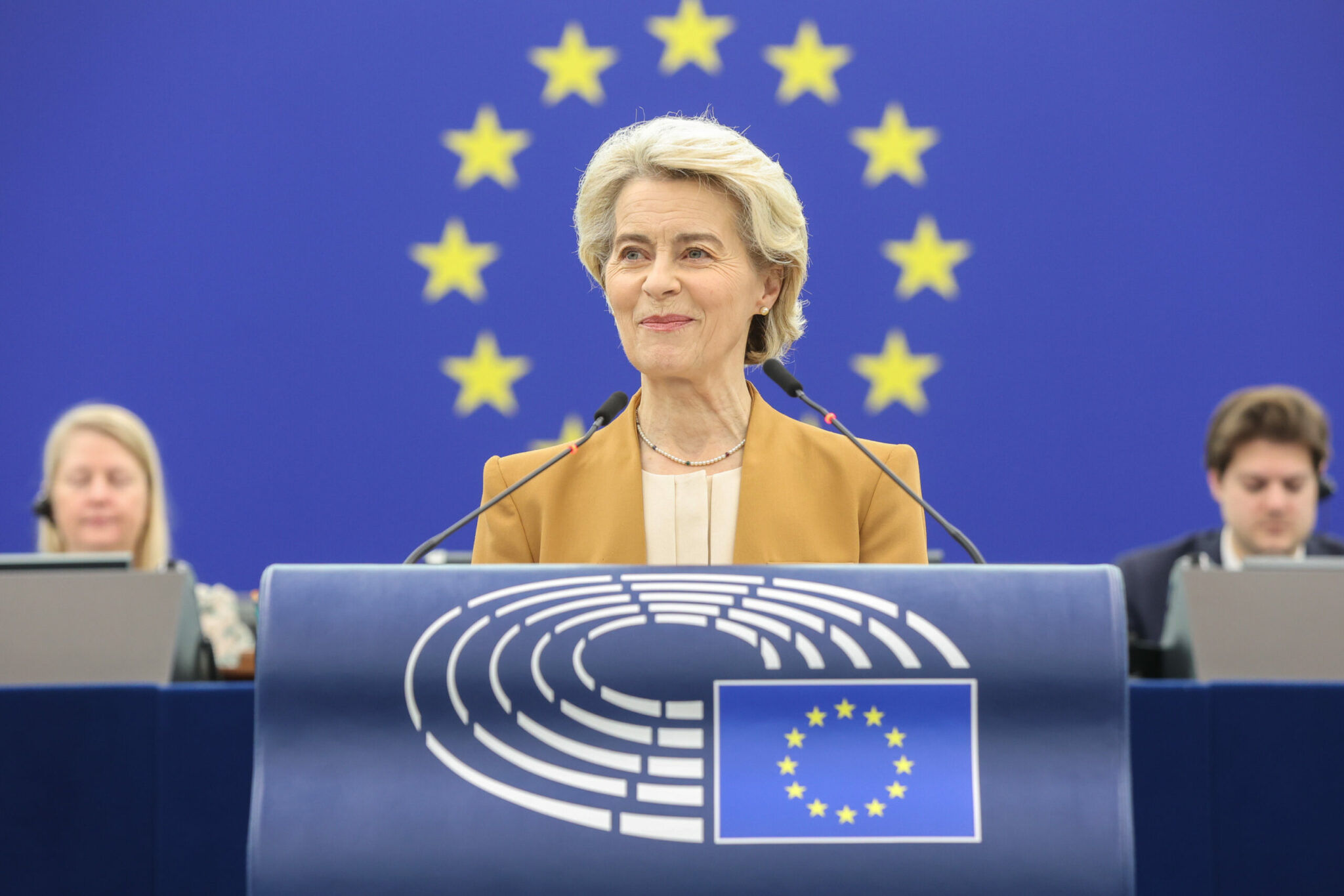Dr. Niall Moran (Dublin City University)
The pursuit of ‘open strategic autonomy’ (OSA) has been the defining phrase of EU Commission President Von der Leyen’s tenure on trade. Of course this phrase also goes beyond trade, impacting other themes such as geopolitics, the economy, the environment, and values. We are now in our fifth year of OSA with the phrase having first been employed in 2020 around the time of the Commission’s Trade Policy Review consultation. This piece briefly evaluates the use of OSA as a guiding concept in EU trade policy over the lifetime of the Von der Leyen Commission and as the term of this Commission draws to a close.
The phrase ‘open strategic autonomy’ captures a certain duality in trade policy. As I stated in my 2023 Brexit Institute Annual Review piece, a review of EU trade policy over a specific period of time should cover two main areas: EU measures that liberalise trade (broadly speaking) and measures that strengthen trade defence. The word ‘open’ in OSA refers to the former category, while ‘strategic autonomy’ largely refers to the latter. In terms of OSA, it is fair to say that the focus on strategic autonomy (over openness) has dominated the term of this Commission. Over the past year there have been few bright spots in the area of trade liberalisation, with the failure of the WTO’s 13th Ministerial Conference in March 2024. Compared to the Juncker Commission, which made the conclusion of a EU-US trade agreement one of its ten priorities, there has been a sense of inertia around the negotiation of new free trade agreements with exceptions such as the New Zealand and Chile trade agreements. The former is the first agreement to include the EU’s new approach to trade and sustainable development and contains legally enforceable commitments on climate change. The latter can be seen as furthering EU strategic autonomy with the EU’s desire to secure access to raw materials being one of the driving forces behind this deal. Nonetheless these countries have a combined population of 24 million and agreements with larger trading partners remain elusive.
The first few years of this Commission focused on strengthening the EU’s trade defence toolbox with the adoption of various instruments with a view to attaining OSA. These instruments have included the Foreign Subsidies Regulation, International Procurement Instrument, the Corporate Sustainability Due Diligence Directive, rules on co-ordinated FDI screening, an anti-coercion instrument (ACI), the EU’s carbon-border adjustment mechanism (CBAM), and the expanded use of sanctions, inter alia
After this initial focus on strengthening the EU’s trade defence toolbox, the past twelve months have seen an acceleration in their usage. The Foreign Subsidies Regulation (FSR) came into force in 2023. This new tool complements EU state aid rules and effectively extends the rules to third country subsidies ensuring a level playing field within the Union. In the first four months of 2024, the EU has already made use of this instrument four times, each time against Chinese companies. The first investigation into foreign subsidies involved a Bulgarian tender for electric trains. This was ended after the Chinese train maker withdrew from the process. Investigations have also been launched in respect of two bids in a public tender for a solar power park in Romania.
It is the fourth use of the FSR against security systems company Nuctech that has raised most eyebrows. In April 2024, the European Commission carried out a ‘dawn raid’ in furtherance of its investigation, seizing equipment, documents, and phones. Dawn raids tend to be used in the context of competition law enforcement (including state aid) or where a court order is granted to prevent the destruction of evidence. Where distorting subsidies are suspected, the FSR permits inspections “within and outside the Union”. Nonetheless, the use of dawn raids to gather evidence against foreign firms and in the enforcement of a trade law instrument is unprecedented in the EU. With the launch of an investigation into the Chinese medical devices sector under the International Procurement Instrument in April 2024, it appears the Commission may only be getting started.
While it might be surprising to see such activity getting underway on the eve of elections, it can be seen as a testing of muscles and the outcome of the EU elections may well prove favourable to such investigations. The pursuit of a level playing field and ‘fair trade’ may well take on an increased importance in the next EU institutional cycle. A harsh review of this Commission’s use of open strategic autonomy would perhaps call to mind the advice of Justin Timberlake’s character in the movie The Social Network; “drop the ‘open’, it’s cleaner” (to paraphrase). While the current geopolitical context has warranted a shift in EU policy towards OSA, the ‘open’ in this formula must be reinvigorated.
Niall Moran is an Assistant Professor in Economic Law at the School of Law and Government at DCU and Deputy Director of the DCU Brexit Institute.
The views expressed in this blog post are the position of the author and not necessarily those of the Brexit Institute blog.
Photo Credit – European Parliament



